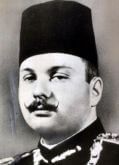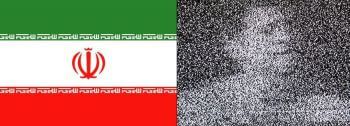 Everything you need to know about today’s coverage of Israel and the Mideast.
Everything you need to know about today’s coverage of Israel and the Mideast.
A PLO envoy to the US reaffirms that a Palestinian state will be judenrein. Hamas may split over PLO membership. And should Iran be denied access to Western TV satellites?
Visit Backspin everyday and never miss another Media Cheat Sheet.
Israel and the Palestinians
• The PLO’s envoy to the US, Maen Rashid Areikat, told the Chicago Sun-Times that Jews would not be allowed to live in an independent Palestinian state. Airekat sought to sugar coat a judenrein state, but columnist Steve Huntley didn’t buy it:
But a settlement would require Jews living in the Palestinian-governed West Bank to leave. In other words, a peace deal will be followed by ethnic cleansing of the West Bank, where Jewish history is measured in millennia and where Jews had lived before being expelled in the Arab world’s 1948 war to destroy Israel.
This isn’t the first time Airekat called for a Jew-free state.
• Israelis and Palestinians are escalating a cultural battle for Hebron’s Tomb of the Patriarchs. AFP describes what the PLO’s UNESCO membership has wrought:
Jewish groups are now working hard to increase the number of visitors to the Jewish section of this site on the occupied West Bank.
In response, the Palestinians launched a counter-campaign to encourage their ranks to hold celebratory events like circumcision ceremonies and weddings at the site’s mosque.

• Jonathan Schanzer says Hamas is ripe for a split between its pragmatists and purists over possible PLO membership:
The prospect of a defanged Hamas is an attractive one, of course, but it’s not that simple.
If Hamas does renounce violence, it will create a vacuum. This is exactly happened in the late 1980s, when the Yasser Arafat’s PLO renounced terrorism. It was the upstart Hamas that quickly filled that void, establishing a reputation as a headline-grabbing terror group that promised to deliver what the PLO could not: the destruction of Israel and the creation of an Islamic state of Palestine.
If Hamas joins the PLO, could a new Hamas splinter fill the void? Perhaps. But even if it isn’t Hamas, another jihadist group will likely emerge. No matter what it’s called, we can count on Hamas members being part of it.
But Asharq al-Awsat says Hamas/PLO unity’s on hold again; Abbas is worried about the West cutting off aid.
• Ron Estas (St. Augustine Record) frets that White House support for Israel is leaving the US internationally isolated:
If the U.S. were to lose the support of these Arab allies, we will have paid a terrible and dangerous price for our alluded to level of support for Israel.
Arab Spring

• It’s become a big issue in Egypt whether Salafi party spokesman Yousseri Hamad was deceived into talked to Israeli Army Radio.
But Tariq Almohayed (Asharq al-Awsat) says the bigger signifiicance is what Hamad actually had to say — namely that the Islamists would recognize the Camp David agreement and negotiate with Israel.
. . . if the Salafist Islamist party – and the Muslim Brotherhood – acknowledge the Camp David Accords, and believe in negotiating with Israel – along with the Muslim Brotherhood affiliated Hamas movement – then why has our region been so preoccupied with this phenomenon of accusing others of being agents for foreign powers or the west, not to mention treason and takfirism? Why have decades, of our life and the life of the region, been wasted on wars and battles, when these groups actually respect peace treaties and negotiations?
• Powerful staff-ed in The Australian denounces the Arab Spring’s Muslim violence against Christians. It also ties in an equally powerful commentary (paywall, but also published at the Hudson Institute) by Khaled Abu Toameh, who slams the PA’s mistreatment of Bethlehem’s Christians.

• Bret Stephens (Wall St. Journal, click via Google News) on why so many people misunderstood the Arab Spring when it first began:
. . . maybe the best answer is that hope and change are two words best kept far apart. Beginning in January, an unreasoning pessimism about the Arab world’s capacity for change abruptly gave way to an unreasoning euphoria. Fourteen centuries of conservatism were supposedly collapsing in the face of Twitter’s 140 revolutionary characters. The term “Arab Spring” became common parlance with no consideration for the change of seasons. People like Egyptian Google executive Wael Ghonim emerged out of nowhere to play the part of Lech Walesa. It was 1989 again at last.
But 1989 was the wrong template. The Arab world had revolted against unpopular overlords before: the Ottomans during the First World War; the British in the 1920s and ’30s; the weak monarchies of Farouk in Egypt, Faisal in Iraq, and Idris in Libya. What happened in 2011 was another such revolt, this time against secular autocrats. Someday it will be known as the Fourth Arab Revolt.
• Since that controversial Vogue cover story, Syrian first lady Asma Assad has disappeared from Big Media’s radar. CNN wonders: Where’s Mme. Assad?
Since then, little has been reported about Asma Al-Assad. It’s not even clear where she is. Could she have returned to her native England, where she attended fancy prep schools and got her college degree? Or is she still in Syria with her husband, as he fends off pressure from the growing protest movement and the many governments that have called on him to step down?
Wherever the Butcher of Damascus’s wife is, she’s still active on Facebook. It may be hard to believe, but 88 people thumbs-upped her syrupy Christmas greetings. Not likely that many were from Homs.

Rest O’ the Roundup
• Iran jams TV signals to prevent citizens from watching content the regime objects to, even as it airs own propaganda on the very same satellites. So the Wall St. Journal asks: Should Iran be denied access to Western satellites? Opinions are divided:
Shirin Ebadi, an Iranian lawyer and Nobel Peace Prize winner, calls for refusing access “until the Iranian government learns to respect freedom of expression and freedom of free information,” or at least until it stops sabotaging foreign news channels’ satellite signals, a practice barred under international conventions Iran has signed. Ms. Ebadi, who now lives in the U.K., contends satellite companies should drop IRIB as a customer.
Others say barring Iranian state channels from European and U.S. satellites would itself amount to censorship. “If the Iranian speech is not advocating terrorism, as a free-speech advocate, I’m reluctant to block it,” said Rep. Brad Sherman (D., Calif.), who has helped craft U.S. sanctions on Iran . . . .
The director of the International Campaign for Human Rights in Iran, Hadi Ghaemi, called IRIB “an arm of repression.” Mr. Bahari, now free, said, “I think the argument of freedom of speech would be valid if the Iranian government was just broadcasting information, but they broadcast forced confessions [and] fabricated propaganda.”

• Cracks in the BDS movement? Israeli spyware was sold to Iran.
• Today’s burning question: Who owns a key Twitter feed? Court to decide if @noahkravitz feed belongs to an Oakland area writer or his former employer. The stakes are high. Kravitz had 17,000 followers when he and Phonedog parted ways.
(Image credits: Hebron via Flickr/rictulio; TV static via Flickr/jetheriot)

